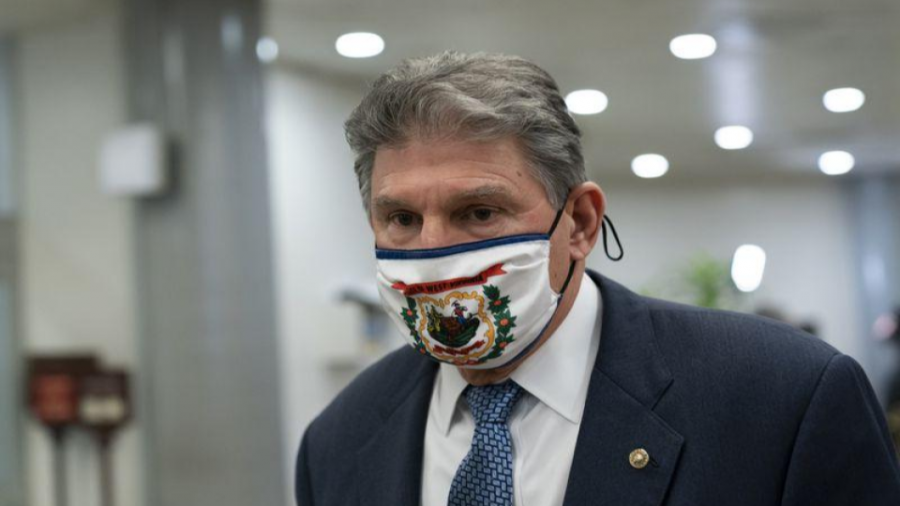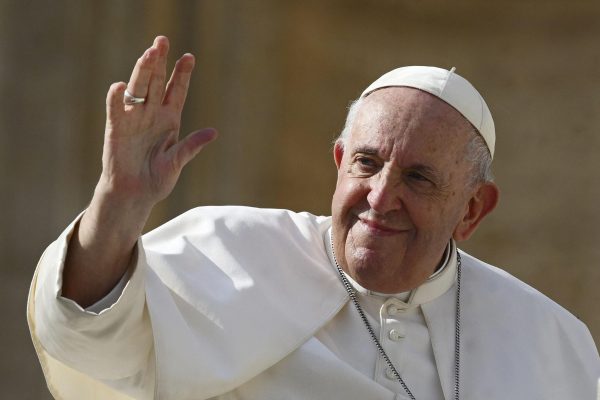Democratic Progressives and Moderates Clash
Sen. Joe Manchin, D-W.Va., departs Capitol Hill in Washington on Feb. 13, 2021.
As President Joe Biden ran for his current political position, he contorted his campaign to exhilarate progressives with an ambitious policy platform; meanwhile guaranteeing moderates that he opposes structural changes to the political process.
Confronting the realities of governing and binary crises of economic recession and public health, Biden is increasingly pressured by members of his party who see an unavoidable conflict between his deference to Washington norms and his promises of far-reaching change.
Sen. Joe Manchin III of West Virginia, one of the most moderate Democrats in Washington, announced that he would oppose the president’s choice to lead the Office of Management and Budget. Imperiling the nomination with an act of friendly fire led Biden’s administration to be infused with concern.
Even though Democrats control Washington, they are hardly unified by the same governing goals. The party’s ideological mixture of progressive and moderate voices helped it win back the White House and the Senate, but the components of that alliance could jeopardize the most ambitious parts of Biden’s agenda.
Progressives see issues such as a minimum wage of fifteen dollars, canceling student loans, and expanding voting rights.
Meantime moderates argue that the path to success in battleground states begins with setting a tone of unity and bipartisanship, as verification of commitment to keep the Senate filibuster.
The dispute among Democrats unveils the difference between the indefinite pledges made during the campaign season and actual governing values.
Now with Biden in office, the divisions that have always hidden beneath the surface are starting to take shape.
Biden rejected one question asking about whether he intended to cancel up to $50,000 in student debt via executive order.
“I will not make that happen,” he said.
The answer set off an exclamation among progressives, student activists, and some members of Congress who proclaimed that he had not only the legal authority but also a political mandate to act.
K Trainor, a student activist who has worked with progressive groups to try and turn out college students for Democrats, said Biden’s answer at the town hall was deeply disappointing. She said that if the administration didn’t deliver for young voters it would make it harder to persuade them to turn out in future elections.
“I think a lot of people in my generation are asking, “‘Where is the courage?’” Trainor said, “It feels like they’re backtracking and we’re not even 100 days in.”
There is also an increasing activist barrage of pressure on Biden and senators like Manchin who have at times stood in the way of progressive change.
During a virtual meeting last week between Manchin and low-income West Virginians that was convened by the grassroots group the Poor People’s Campaign, worker after worker pressured the senator to embrace a $15 minimum wage which he has opposed.
The Rev. William J. Barber II, a co-chair of the Poor People’s Campaign who organized the West Virginia workers’ meeting with Manchin, said the debate reflected an ugly underbelly of Democratic politics.
While poor and low-income workers, particularly those who are racial minorities or young people, make up the core of the Democratic base, he said, the policies that they care about most have often been sacrificed because of political calculations.
“Democrats ran on this, they put it in their platform and they said this is what needs to happen,” Barber said, “It would be the ultimate abandonment and betrayal to then get here and have the power to do it, and then retreat.”
With progressives and moderates at an unavoidable clash, many people wonder what they will be able to accomplish. While also worrying if Democrats will keep their end of the deal and go through with all of the pledges they promised the people of America.
Your donation will support the student journalists of Canyon High School. Your contribution will allow us to pay for our print issue magazine, website, and equipment costs.






